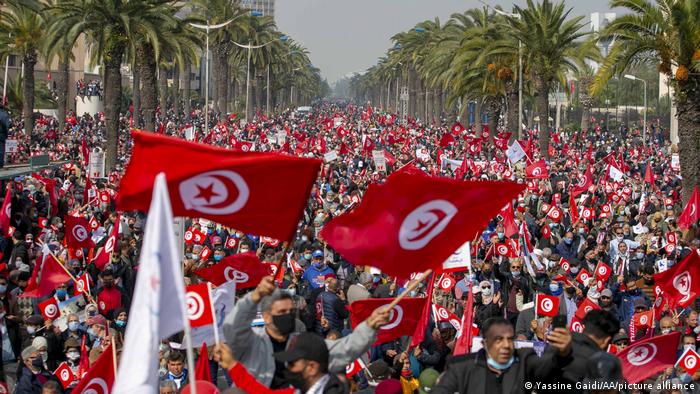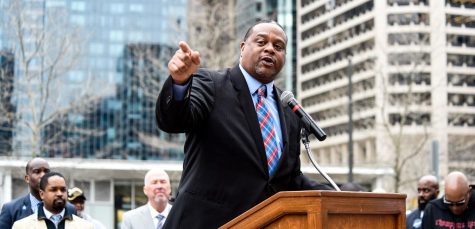Tunisian Democracy
Permanent or Periled?
On Monday September 20th, 2021 the Tunisian President Kais Saied addressed the nation in Sidi Bouzid. The political crisis in Tunisia has been hanging over world leaders across the world for months, but Monday’s announcement of new electoral laws and transitioning governing rules took their concern to the next level. The location of his address was carefully chosen and noted by critics, as Sidi Bouzid was the epicenter of the Arab Spring revolts in 2011. The revolts in 2011 originally brought democracy to the North African country, but what will happen to that democracy in the coming months? This is the question haunting the global community
President Saied has been systematically consolidating power in Tunisia over the past eight weeks. On July 25, 2020 Saied dismissed the Prime Minister, he suspended all actions of Parliament, and he assumed all governing powers of Tunisia. The president also removed the parliamentary immunity that protects the 217 lawmakers in the Tunisian parliament from prosecution by the government. These moves led to protests across the country which he condemned in his speech on Monday. He called the protests against him “sedition” in a move that angered activists worldwide who saw the protests as citizens fighting for their democracy. Further defending his actions, President Saied announced, “we are in a corrective revolutionary movement,” and continued by stating that he believed all his actions were in line with the constitution of Tunisia. His speech was frequently interrupted by angry protesters shouting from the crowd. The President promised to appoint a new Prime Minister for months, but he has yet to achieve that goal. He also assured his citizens that the rights they received in 2011 would not be taken away.
Clouding these statements though were the travel bans and frequent arrests that have been occurring since his actions on July 25. Seif Eddine Makhlouf, a conservative parliamentary critic of the President, was arrested by plainclothes officers earlier this month in the capital city of Tunis. Makhlouf was attending a court hearing, fighting charges against himself, when officers beat him and shoved him into a car at the courthouse. A judge ordered his release, but violent moves like this have become more frequent against prominent political leaders in Tunisia.
Earlier this year, a staffer close to the President told Reuters Newspaper that the President was planning on repealing the country’s existing constitution and replacing it with a new one. Although the new one is yet to be seen, and would be subject to a referendum, it is possible that the alternative version would receive popular support from some groups of citizens in Tunisia. In fact his actions since July 25 have polled favorably among certain Tunisian voters who see the current government as one that does not serve or work for the people anymore. The government has been significantly eroded over the past 10 years by partisan divide and political gridlock. Despite these factors, Tunisia is seen as a beacon of hope in a post Arab Spring world. One of only a handful of countries that was able to form a democracy after the revolutions, it is a vital component of the U.S. government’s defense of their actions.
The White House has not been shy in addressing the unfolding situation in Tunisia, and the United States Deputy National Security Advisor Jonathan Finer met with President Saied on August 10th. According to the White House, during the meeting Finer made clear that he was, “reaffirming his personal support, and that of the Biden-Harris Administration, for the Tunisian people and urging a swift return to the path of Tunisia’s parliamentary democracy.” During his visit, Advisor Finer also met with society leaders and reaffirmed the U.S. Government’s support for their efforts to preserve democracy. Secretary of State Antony Blinken also called President Saied earlier in August to affirm the U.S.’s stance on the changes in Tunisia. President Saied responded to the statements from the U.S. with a similar message to those during his speeches; reaffirming that everything he did was legal within the current constitution of Tunisia.
Democracy in Tunisia has been an essential talking point of America and their European allies and showing that democracy was not only a possibility but was actually achieved in war stricken regions of the world. The loss of this democracy could prove devastating to the promotion of democracy worldwide but specifically in Africa. The loss could also result in destabilization and unrest in the North African region, which in turn could lead to a mass emigration of Tunisian citizens towards Italy and other European countries that sit along the Mediterranean Coast. Europe and the U.S. wish to avoid a situation like this that could result in massive casualties. The fate of the country’s democracy will be decided in the coming months, with President Saied likely to call for parliamentary elections and his actions pre and post election will be telling of the future of Tunisia. Democracy is in the hands of President Saied and the international community will be watching vigilantly to see what he chooses to do: continue to seize power or return to democracy.











